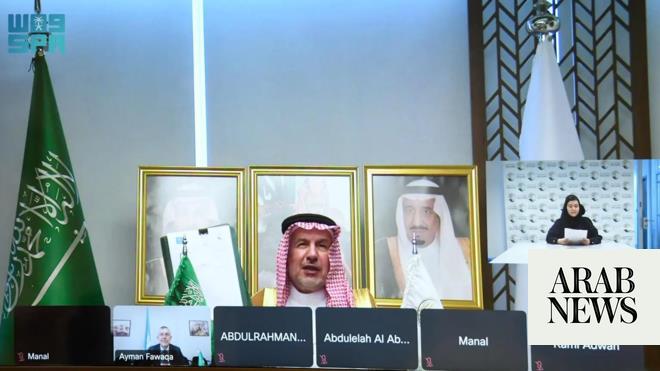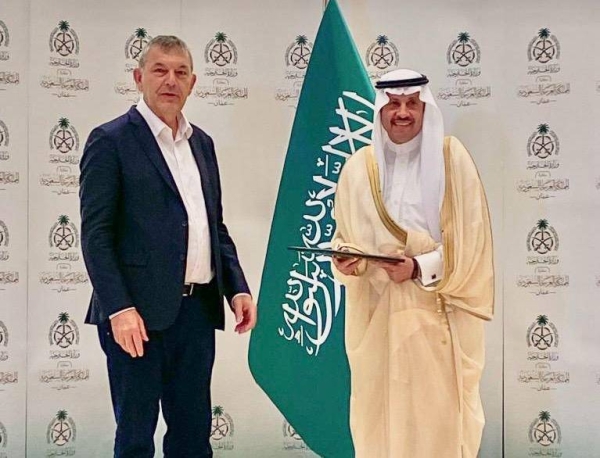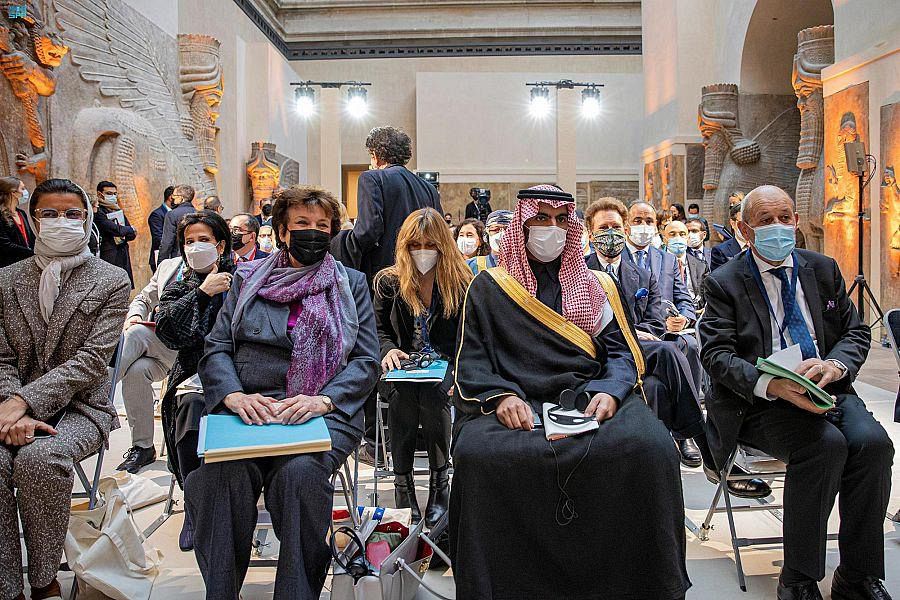
Jeddah, August 29, 2019, SPA -- Launched under the theme "Promoting Islamic Solidarity through Food Security", the second session of the Second General Assembly of the Islamic Organization for Food Security (IOFS) has been concluded August 27 in Jeddah. The session witnessed the participation of ministers and senior officials in charge of agriculture, rural development and food security in 57 member states of the Organization of Islamic Conference (OIC).
The General assembly has taken new measures to support and promote rural development, eliminate the food gap, and provide potential in agricultural production and anti-desertification efforts in order to improve quality of life.
"Saudi Arabia attaches utmost importance to agricultural development, food and water security, and environmental balances in its national policies and strategies, in line with global objectives including sustainable development," said Eng. Abdulrahman Al-Fadhli, Minister of Environment, Water and Agriculture, chairman of the second session of the IOFS general assembly. "The Kingdom has adopted strategies and programs to promote sustainable agricultural development, expand agricultural land, contribute to national, regional and global food security, and conserve natural and environmental resources."
Al-Fadhli also stressed the Kingdom's ongoing support for IOFS's efforts to achieve food security and promote rural development to eliminate the food gap; calling on member countries to adopt a food security strategy and rural development programs to consolidate and sustain agricultural production, protect against migration to major cities, increase vegetation and production, and protect the environment. The minister also announced financial aid amounting to $2 million from the Saudi government for supporting IOFS and contributing to the implementation of its programs and commitments.
For his part, the Minister of Agriculture of the Republic of Kazakhstan, chairman of the first session of the general assembly explained that IOFS aims to enhance regional and global solutions to meet the current challenges in food security. He added that IOFS is considering the establishment of a Grain Fund to meet the needs of member states, promote the trade of crops, and provide humanitarian assistance to member states.
He also stressed that the IOFS is working to create conditions for the exchange of expertise, the introduction of new technologies, and the intensification of cooperation between the private sectors in the OIC member countries. He also emphasized the need to solve the issue of water shortage through land reclamation and modern irrigation technology; in addition to focusing on the development of transport and logistics infrastructure, and expanding trade relations.
"The current session is historic in several aspects: It is the first to be held after the implementation of the IOFS Statute, and represents the first step towards the actual launch," said the OIC Secretary General Dr. Yusuf al-Othaimeen. "This session is being held while the OIC is starting to implement a comprehensive policy for the development of agricultural commodities and improvement of inter-Islamic cooperation in the food and agricultural sectors".
Al-Othaimeen also expressed his appreciation to the Government and leadership of Kazakhstan for their commitment to fund the administrative budget of the IOFS General Secretariat during the first three years. He also appreciated the Kingdom's donation of $2 million to the Organization, hoping for similar moves from member states.
Al-Othaimeen also urged the Executive Council and the IOFS Director-General to attach importance to programs that would address the urgent priorities of the member states in the promotion of agribusiness, infrastructure development, research and development, and attention to food security reserves.
"Agricultural development and food security are among OIC priorities, since the economies of the majority of the member countries are based on agriculture; agriculture accounts for about 12% of their GDP, and they occupy 29% of agricultural land worldwide," Al-Othaimeen added. "25 of these countries are among the top 20 countries producing major agricultural commodities globally, including coffee, cotton, cocoa, wheat, rice and maize, which are essential crops for global food security. Similarly, more than 53% of the total population of member states live in rural areas and depend on agriculture for their livelihood".
For his part, the IOFS Director-General Yerlan Baidaulet said that ensuring sustainable food security and maintaining the quality of halal foods at the national and regional levels is what the IOFS targets, asserting its quest for fraternal partnership and cooperation. He added that a database was designed to show and analyze the potential of import and export among member states.
He also explained that the IOFS is considering the establishment of the OIC Common Agricultural Market to cooperate in trade and investment, sharing sharia-compliant financing methods, exchange of information through partners and research centers, and cooperation in the latest technology and science in agriculture, husbandry, and fishing.
In addition, he pointed out that the IOFS is keenly interested in working with partners to develop unique plans for the delivery of food through humanitarian aid programs for grains and sacrifices; calling for coordination with Islamic social institutions, such as Zakat, charity and endowment funds to cover part of the expenses.
Participants elected the office of the second session of the general assembly to be headed by Saudi Arabia; Yerlan Baidaulet was appointed Director-General for the current session. In addition, boards of directors were adopted for the MENA region from Saudi Arabia and the UAE; for Asia from Afghanistan and Turkey; and for Africa from Burkina Faso and Gambia. The meeting also witnessed the adoption of an agenda and action plans, and the accession of a number of states to the IOFS Statute.
--SPA
www.spa.gov.sa/w1162857







